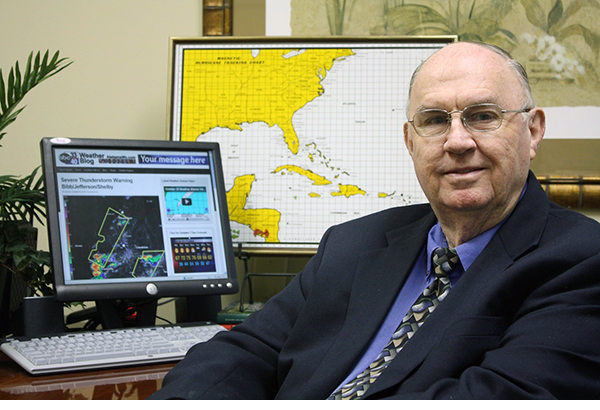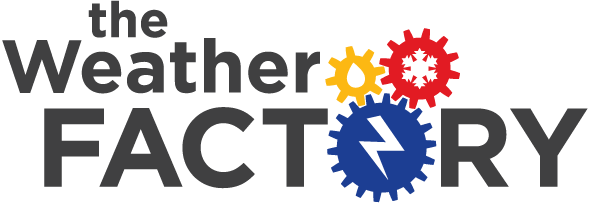The Times Are A-Changin…
“If your time to you
Is worth savin’
Then you better start swimmin’
Or you’ll sink like a stone
For the times they are a-changin’.” – Bob Dylan
After spending some time last week at the American Meteorological Society annual conference on broadcast meteorology last week in Nashville, I sense fear among some long time broadcast meteorologists. They fully understand the changes that are coming to our industry, and either fear for their jobs, or simply want out. I met some very young people that seem to be blind to the times; they believe if you are a good forecaster, are attractive, wear nice clothes, and have white teeth, you are on the road to fame and riches.
Let’s look reality.
*Most people do not get daily weather forecasts from television. Who in the world wants to wait until 5, 6, or 10:00 p.m. to get a weather forecast. Or, in the morning, do you really want to try and wait until the weather segment on TV before you get dressed? Nope. You simply look at the weather app on your smart phone. Quick, easy, and on demand. Who needs a TV weather guy.
*Fewer and fewer people are watching local TV news. They get the news they want, that is relevant to them, on demand anytime they want on their phone, tablet, or computer. The idea of watching a “Ron Burgundy” style newscast from the 70s is really limited to people older than 50, and that generation is shrinking as more get old and die.
Here are the problems.
*Most apps people use on smart phones are “crap apps” that are not accurate, or really helpful. They generally use raw model output statistics (MOS) data from computer models without any human intervention. You get a little picture of a sun, cloud, or storm, a high/low, and a “probability of precipitation”. This might work for San Francisco and the Silicon Valley, home of Google and Apple, but not for people in the heartland that deal with frequent weather changes that include dangerous and life threatening weather on occasion. These apps tell you nothing about the seriousness of a thunderstorm threat, or timing, coverage, and placement of precipitation when it comes.
*During tornado outbreaks (and other serious severe weather situations), people expect long form TV weather coverage, complete with helicopters, SKYCAMs, fancy radar displays, multiple live streams from the field, and experienced professional meteorologists that, when you look them in the eye, know what they are talking about and have had long years of experience in the market. All of this is very expensive, and with the daily TV news audience going away and advertising revenue shrinking, affording these tools won’t last much longer. People won’t watch our daily newscasts, but demand high end severe weather coverage.
*There is rapid consolidation underway in the TV business. Much like what radio went through 10-15 years ago. We will wind up with a handful of large corporations that own most of the commercial television stations in the nation. Newsrooms will be consolidated, jobs will be eliminated, and operations will be centralized. Most of the “radio personalities” you hear today away from morning drive are actually voice tracks, recorded by people far away from the market where you live. This means there will be a few TV meteorologists left that will, most likely, wind up doing forecasts for multiple markets within their company.
What does a TV weather person do?
*Understand if you are “TV weather person”, you pretty much have no future. There was a time when the horse and buggy business was very good, and generated great wealth for people in that business. But, times changed. Those in the horse and buggy business went belly up. But, those in the transportation business did just fine. A “media meteorologist” that creates content across multiple platforms, that match the needs of the consumer, will do just fine in the long run.
*While weather forecasts are a commodity, we do provide extremely valuable information. A sharp, well written forecast discussion by an experienced, professional meteorologist leading to a detailed, accurate forecast provides great value to the user, and they will seek it out when they get frustrated with the “crap app” they use daily.
*Understand, producing content across multiple platforms to match the needs of the consumer means sacrifice. If you do not have a servant’s heart, willing to put the needs of others before you own needs, you won’t survive this. Doing this job right means long hours and little sleep. It means responding to viewers and real engagement. It means producing some forecasts that are not, and possibly cannot be monetized initially. Maybe forever. You have to build trust and loyalty by always being there for your followers/viewers/listeners/readers. And, it doesn’t happen with some magic “eight hour shift” anymore.
*You need to develop and bring in non traditional revenue for your current TV station. Communicate with your bosses. Help them make quarterly budgets. Weather is one of the last real “easy sales”, and if you are pro active you have a better chance of surviving the changes. Make yourself too valuable to lay off. And, whatever you do, be sure and do it in a positive way. There are too many negative nellies in the TV business, and you sure don’t need to be another one. Have a passion for what you do, and it will spread. Despite the changes, tackle the challenge and help owners find a media business model. Be part of the solution, and not part of the problem.
*Use social media with intelligence and patience. The followers you have there will become very valuable down the road, but you won’t have many followers unless you produce good content, respond to questions and comments, and are consistent. And, remember, many of your followers will not watch you on TV news because they simply don’t use local TV news. But, these followers will be very important currency that will make your personal brand important in the years ahead.
The broadcast television business must change or die. It will change by the nature of the beast. The change, most likely, will be painful and difficult, but something better will come when we get to the end of the long, dark tunnel. If you don’t want to deal with the bumps in the road, maybe the right choice is to get out. Work in another part of the weather enterprise, but remember the government sector has their own issues as well. But, if you hang in there, do it with a passion, integrity, and a servant’s heart, and you will survive and maybe even thrive.
Category: Hodgepodge















